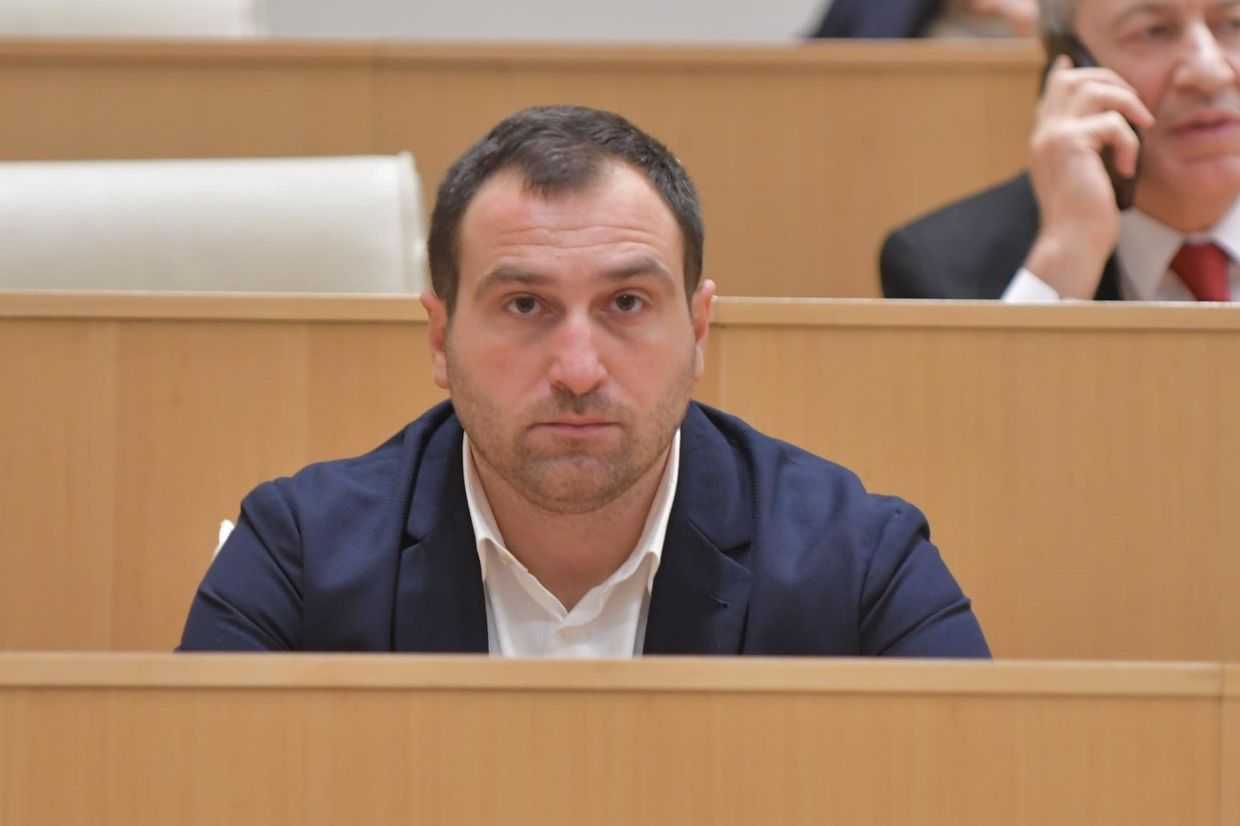
Dutch journalist Joost Bosman was twice denied entry to Georgia in July, adding to the list of Western journalists barred entry into the country for covering the ongoing wave of anti-government protests.
Bosman told OC Media that he arrived at Tbilisi Airport on 5 July, where he was held for several hours before being refused entry. He said the border officials cited a ₾5,000 ($1,800) fine he had for allegedly blocking the road while reporting on demonstrations taking place on Tbilisi’s central Rustaveli Avenue.

The official reason he was given for being denied entry was ‘other reasons envisaged by Georgian legislation’. Georgian border officials regularly use this justification as a tool to bar people, including Western activists and journalists critical of the governments in Tbilisi and Moscow, from entering the country.
Although officials instructed him to pay the fine and promised him entry if he did, the airport bank, Bosman said, could not locate the fine in the system. He was later questioned by a security officer about his journalistic activities, including ‘whom he had spoken to’ and ‘what he had done at the protests’.
Bosman noted that he later found out that the fine had already been overturned; he had received a letter from Georgia’s Interior Ministry two days after returning to the Netherlands, informing him that his appeal had been upheld and the fine had been waived. The letter was dated 2 July — three days before his first entry attempt — which he believes explains why the fine could not be found in the system.
No longer expected to pay the fine, Bosman made a second attempt to enter the country on 14 July from the land border with Armenia, but was again denied entry.
‘The waiver did, I thought, strengthen my position. After all, the (presumed) reason for the refusal — the fine — was no longer there’, Bosman told OC Media.
‘I had the letter waiving my fine with me. I handed it over immediately when the customs officer brought up the fine again. She took it to the back. I had to wait about three hours until the customs officer told me I’d been refused entry again’.
He was again officially denied entry for ‘other reasons envisaged by Georgian legislation’.
When asked whether he plans to appeal the decision, Bosman said the Dutch Embassy and the editors-in-chief of the media outlets he works for had written letters to the Ministry of Foreign Affairs and the Georgian Embassy in the Hague seeking clarification on his case. To his knowledge, they have yet to receive a response.
Bosman has covered Georgia for years, including during the 2013 presidential elections, the local elections in Zugdidi in 2019, the 2024 parliamentary elections largely perceived as rigged, and subsequent protests. Bosman used to be a Moscow-based correspondent, and has covered Ukraine as well, ‘including DNR and LNR’.
He is a freelance journalist reporting for several Dutch outlets, including Algemeen Dagblad, BNR Nieuwsradio, Het Financieele Dagblad, EenVandaag, and EW Magazine.
Bosman says that he had regularly reported on Russia’s invasion of Ukraine, having also reported from Russian-occupied Donetsk and Luhansk.
A growing list of border denials
Bosman is among the latest of a number of Western journalists critical of the governments in Tbilisi and Moscow to have been denied entry into the country — a seemingly popular trend since the outbreak of daily anti-government protests in late November following the Georgian government’s decision to suspend the country’s EU membership bid.
Some of the more high-profile cases involving Western figures being denied entry include former US diplomat and civic sector consultant Maggie Osdoby Katz, Romanian stand up comedian Victor Patrascan, prominent French photographer Marylise Vigneau, Lithuanian women’s rights advocate Regina Jegorova-Askerova, among others. Jegorova-Askerova reportedly had a family in Georgia, including two children, and also held permanent residency.
On 21 May, Simon Vandenbroucke, an Enlargement Programme Officer working for the EU Delegation to Georgia, was denied entry to Georgia without explanation. After the delegation addressed the Georgian Foreign Ministry regarding the matter, however, the Georgian authorities ‘presented oral apologies for the regrettable incident and confirmed that the staff member is welcome to come back to his place of posting’.
Later the same month, the French and Polish Embassies in Georgia issued travel advisories, warning their citizens they could be denied entry into Georgia or face heavy fines for participating in or sharing information on social media related to the ongoing anti-government protests.







![Baia Margishvili standing in central Tbilisi with a sign reading: ‘The Prosecutor’s Office [is] a punitive squad. How many more innocent people will you put in prison?’ Photo: Mariam Nikuradze/OC Media.](/_next/image/?url=https%3A%2F%2Fassets.bucket.fourthestate.app%2Foc-media-prod%2Fcontent%2Fimages%2F2026%2F02%2Fcalls-for-sanctions-and-raids-19-10-25-48.jpg&w=3840&q=50)



